Fighting Inequality for Better Mental Health
‘Mental Health in an Unequal World’ is the theme of this year’s World Mental Health Day – chosen to shine a spotlight on the global inequalities that impact people’s mental health, all around the world.
As well as social inequalities affecting the mental health and wellbeing of those experiencing discrimination – based on race and ethnicity, sexual orientation, gender identity, disabilities and economic status – it can also be harder for people on the fringes of society to access the mental health support services they need.
Tali Shlomo, diversity and inclusion specialist and friend of FormScore, has seen the fallout from these societal inequalities first-hand:
“The life experience of being treated as ‘other’, the stigma of mental illness, and disparities in access to support all play a pivotal role in mental health inequality. For things to change, people need safe places where they can share how they’re feeling with allies who can support them, and who will stand by their side. This can help us to smash the stigma, whilst improving accessibility to wellbeing and mental health provisions.”
We know that lesbian, gay and bisexual people are more than twice as likely as heterosexuals to have a long-term mental health condition; we know that black people are four times more likely to be detained under the Mental Health Act than White people; and we know that 75%-95% of people in low and middle-income countries are unable to access mental health services.
It has to stop. Things have to change.
We all deserve to be well.
Mental Health in an Equal World
Inspired by the theme of World Mental Health Day 2021, NHS Scotland shared a survey with the general public, as well as professionals across its networks, to create a vision of what mental health in an equal world would look like.
People answered the call, and spoke of a world where:
People can talk openly, without stigma or fear of discrimination
People aren’t labelled, judged or treated differently, and are simply allowed to be human
Everyone can access the support they need, when they need it
People’s environments support, rather than harm, their mental health
Everyone has access to protective factors, such as green spaces, education, employment, and financial security
Communities, workplaces and schools are aware of mental health, and how to support it
No one is at greater risk of mental illness because of who they are or where they come from
People also spoke out about how they thought we could make that vision a reality:
Talk openly about mental health and suicide, and create a space for others to do the same
Challenge structural inequalities and societal factors that contribute to poor mental health
Teach children and young people about mental health in same way they’re taught about the physical body
Teach them emotional literacy and give them the tools to help themselves and others when they’re struggling
Have better funding for mental health, with early intervention and prevention at its heart
Have workplaces provide information and training on mental health, along with check-ins and support
Listen and be kind to each other
There might be a long way to go, but people know what they want, and they’re learning how to make it happen. The important thing is to give everyone the tools and resources they need to make better wellbeing accessible to all.
Form for All
FormScore was designed to help people better manage their wellbeing, understand the factors that impact their wellbeing, and open up an honest dialogue with friends, family and colleagues about the state of their mental health.
While there has always been barriers to the uptake of digital wellness solutions in certain groups – barriers such as stigma, familial shame, cost, relevance and access – the pandemic has served to highlight these inequalities in the world of mental health. Wellness solutions are most typically used by white, middle-class women – leaving many groups in our societies and workplaces underserved.
That’s not a world we’re willing to accept.
We want to ensure that positive wellbeing is achievable for everyone; regardless of background or personal identity.
Societies need accessible ways of understanding the wellbeing of under-served groups and minorities. “Form for All” has been developed to provide exactly that: offering businesses, universities, and individuals a simple wellbeing tool that builds self-awareness, fosters connection, fuels allyship, and strengthens peer support.
We’ll be looking to forge a number of partnerships with organisations supporting under-served groups, because we believe that the best way to address inequality is by working together to share knowledge and insight, serve the needs of every community, and make sure that no-one gets left behind.
Get Involved
We all have a part to play; so ask yourself what you can do to make the world a more equal place.
Could you be an ally? Could you speak out more? Could you call out injustice when you see it?
Because no-one has equality until we all do.
Find out more about Form for All, or get in touch if you know of any groups, charities or communities we should be reaching out to.
Article by Emma Attenborough-Sergeant, The Wellness Writer. Helping leaders to improve culture with relatable mental health and wellness content.


